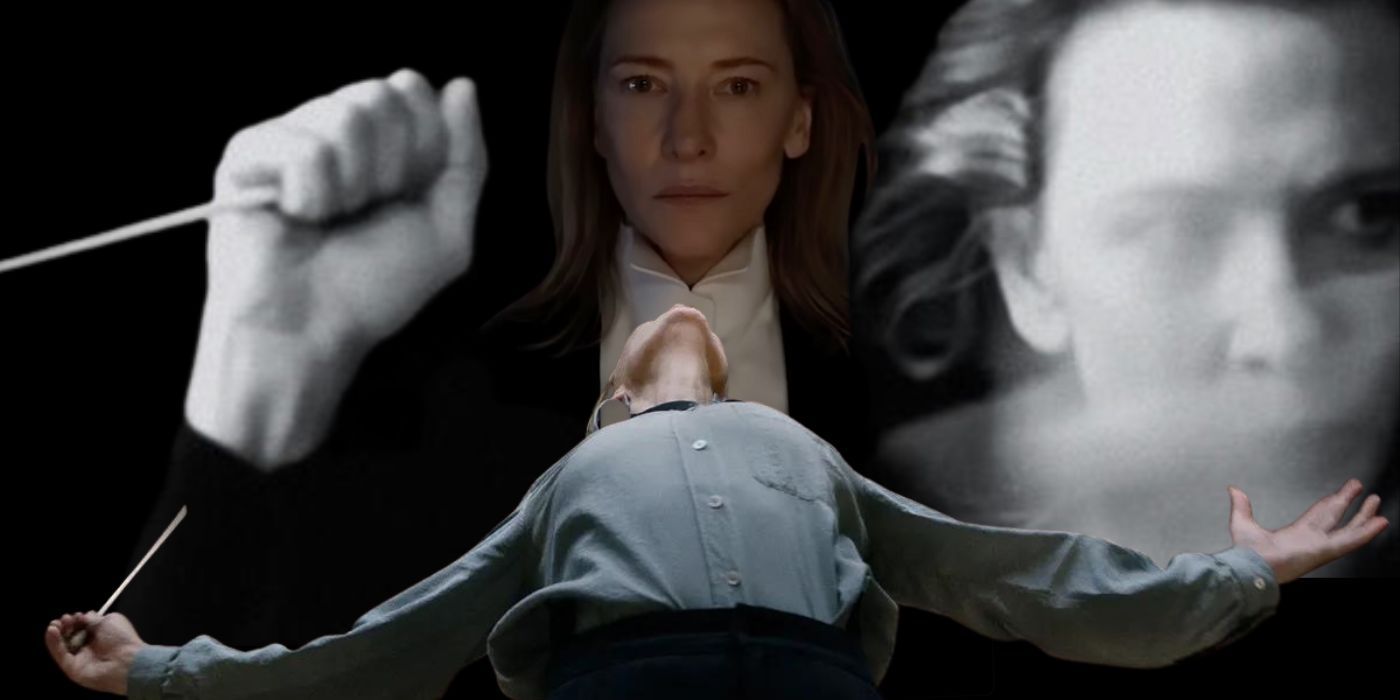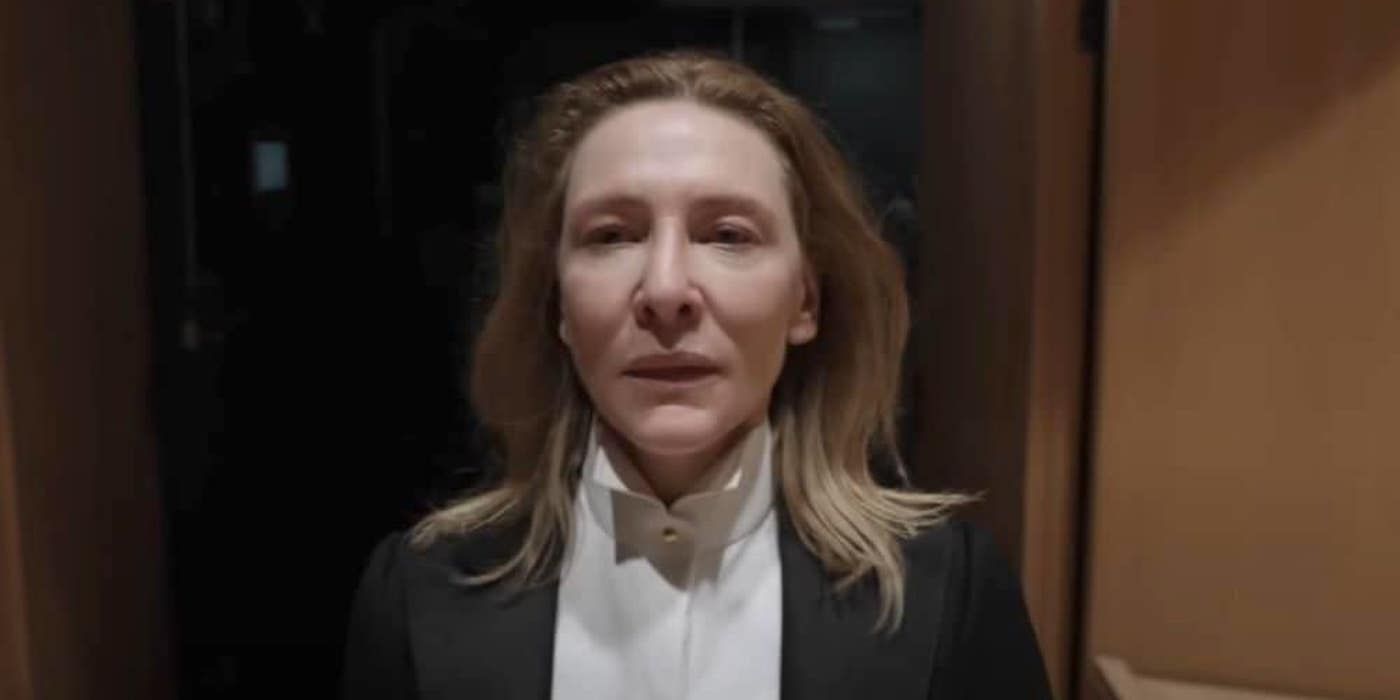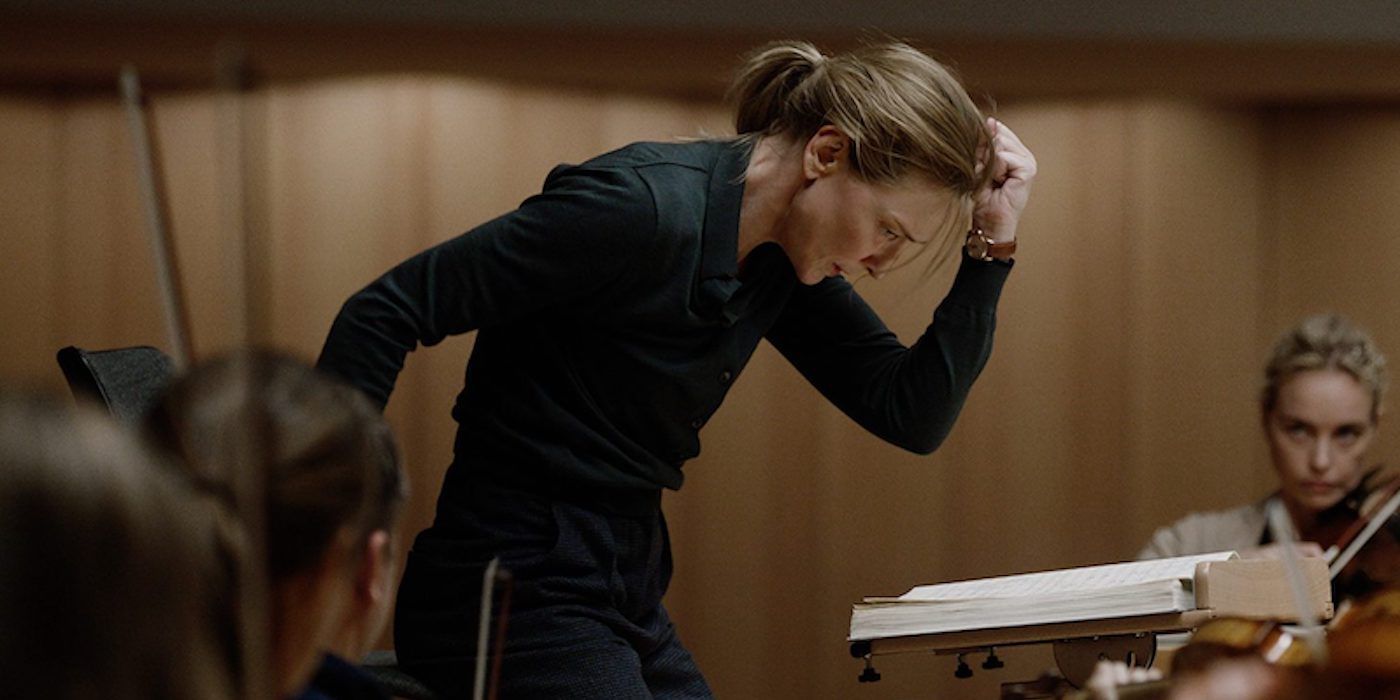TÁR Is Actually a Horror Movie (original) (raw)

Sign in to your Collider account

Audiences around the world have been captivated by Lydia Tár's story. Her fall from grace has led to interesting discussions, ranging from cancel-culture to the abuse of professional power dynamics, and even resulted in a mass of memes. However, writer/director Todd Field's film may not be as literal as it seems. There are a few hints at the beginning of the film to suggest that TÁR is essentially a surrealist ghost story, like the screams from The Blair Witch Project or the presence of a ghost hidden on the edges of the screen. On the surface it appears that Lydia has it all figured out; however she conceals a lot of her inner demons. Despite her best efforts to avoid her past, she finds herself haunted by it, running full force in an attempt to escape her misdeeds. At the start of the film's final act, Lydia descends a dark staircase into a world that looks similar to her own, but is slightly different. It is as if her nightmare has come to life in this new world. She is caught up in the consequences of her malice, knocked off her pedestal, stripped of her acclaim, and branded a monster.
At the beginning of the film_,_ Lydia Tár (Cate Blanchett) is blessed with good fortune as one of the greatest living composers/conductors, and the first female chief conductor of the Berlin Philharmonic. The audience learns of her entitlement to said acclaim during her interview with Adam Gopnik at The New Yorker Festival, where she promotes her crowning achievement, the upcoming live recording of Mahler's 5th Symphony. Gopnik also touches on the five years Lydia spent in the Ucayali valley among the Shipibo-Konibo as a musicologist. She still follows these teachings, performing their rituals, chanting to spirits for inspiration, and drawing kené. In the Shipibos world, everything that exists is made up of these kené designs and is really an opening to the infinite. To the nonperishable. The geometric designs come from the Konibo women’s visions, they tell stories of ethereal energy and may be sung as icaro for healing purposes. Audiences can hear Lydia's recording of Maestra Elisa Vargas Fernandez (Reshin Wesna) singing an icaro during the opening credits.
Why Is Lydia Tár Haunted?

Image via Focus Features
Lydia’s experience in Eastern Peru has profoundly influenced her life, changing the way she perceives the world. As a result of taking a lot of ayahuasca during her time with Shipibo-Conibo, she is more in touch with the spiritual realm. Each time before she sits down to write a new piece Lydia lights candles and whispers, "Haux, Haux!” This is a greeting, a blessing, a confirmation, or thank you to the people of the spiritual realm. It mimics the sound of the Cosmic Serpent, the anaconda Ronin Kené. Of the three people who know most deeply about Lydia’s spiritual connections is her former protégé, Krista Taylor (Sylvia Flote). It appears from Lydia's dream sequences and her email correspondence that she groomed Krista into a sexually transactional relationship that later ended in disdain. Because of this, Lydia blacklists her, ruining Krista's prospects for a career in conducting. Before returning to Berlin, Krista sends Lydia a copy of Vita Sackville-West's novel Challenge. The story was inspired by Vita Sackville-West's tumultuous love affair with Violet Trefusis. The dedication page in the Romany dialect translates: "This book is yours, my witch. Read it and you will find your tormented soul, changed and free," followed by more kené designs drawn by Krista. In the novel and in real life, Violet often threatened suicide if Vita left her. Lydia is well aware of this, so she trashes the book for fear of its contents. No matter how far Lydia tries to separate herself from Krista, a piece of her always remains.
As the film progresses, Krista's presence becomes increasingly prominent. Following Krista's suicide, many serious allegations against Lydia come to light. She begins to have nightmares, chronic pain, an increasing sensitivity to sound, and visions of kené designs. Even though she may not be visible to Lydia, Krista's ghost lingers just behind her like a watchful eye. There are two frames in which the audience can catch her ghost, the first, about one hour into the film, hidden in Lydia's apartment, and the second, shrouded in darkness as she sleeps. Lydia strives to keep these distractions at a distance in order not to interfere with her preparation for recording Mahler's Fifth Symphony. However, her facade is cracking. Her pattern of behavior is well known to the orchestra, and they are aware of her attempts to groom the new cellist, Olga Metkina, played by real-life cellist Sophie Kauer. The fear of being ostracized, however, prevents anyone from speaking against it. Lydia has taken advantage of her bond with the metaphysical realm, to not only achieve acclaim and glory, but to hold power over anyone she deems inferior. The spirits, however, have a way of balancing the scales.
Entering A New Reality

Image via Focus Features
There is a peculiar visual cut near the beginning of the film's second hour. In the course of dropping Olga off at her dingy apartment, Lydia notices that Olga's stuffed bear has been left behind. Lydia calls out to her, but to no avail. Lydia waves the bear out of her window as a silver car passes by, followed by a reverse shot that shows no indication of time passing. In spite of this Olga has vanished, and Lydia has already stepped out of her car. After making her way through the passageway, Lydia finds herself in a courtyard filled with trash, from which she can hear a woman singing in the distance. The melancholic voice appears to be coming from down a dark staircase. Lydia descends into this negative zone, a wet, poorly lit substructure of vacant rooms. As she walks further down the hall, she notices the sounds of footsteps behind her. Lydia turns to find a black German Shepherd snarling at her, which feels like a visual nod to Andrei Tarkovsky's 1979 film Stalker - in the film the dog acts as a symbol of doubt and disbelief. Filled with fear, she runs away and face-plants at the top of the stone steps. In this sense, Lydia is now in a mirror world. Much like in the Japanese novel 1Q84, written by Haruki Murakami, the main character descends a ladder and emerges in a world that looks similar but in which everything is slightly different, strange, and wrong. The last act of TÁR seems to take place there.
The pristine image Lydia has constructed for herself shatters. Her right hand, the one that marks time and moves it forward, is now in immense pain. This is the first mark of her loss of control. Then comes a video of an intense encounter at Juilliard, oddly cut to pieces to "create linguistic traps" for Lydia. Following this, a story is published in the New York Post accusing her of grooming multiple young women, resulting in protestors picketing her book release and online labeling Olga as “fresh meat.” Lydia's wife Sharon (Nina Hoss) kicks her out and bans her from their daughter. She’s fired from her position as chief conductor, losing her chance of performing the Fifth. Finally, she tackles the hack they’ve brought in to replace her during the live recording. This avalanche of misfortune seems almost too swift and melodramatic to be true. Is this reality? Have the spirits used the Talmudic power to reach back in time and transform the significance of her past deeds, or is this all Lydia’s vision as she bleeds out in the dingy courtyard? Not long before her descent into the basement, Lydia has another bizarre dream. The dream depicts her lying on a bed floating in the Amazon where Ronin, the cosmic snake, swims closer and closer to her. He is unable to reach her before her heart catches on fire and she is awoken. As a result, he is unable to help Lydia and purify her spirit before her life goes in smoke.
'The Five Is a Mystery'
.jpg)
Earlier in her conversation with Gopnik, Lydia stated, “The Five is a mystery”. The spiritual meaning of the number five is related to independence, individualism, adaptability, major life changes, and life lessons learned through experience. The number also symbolizes motivation, determination, courage, imagination, and making positive choices. Making positive choices? One could argue that Lydia has been punished by the spirits for abusing her power. She lost the chance at Mahler’s Fifth Symphony because she can no longer receive that song. Lydia is now on a different plane from the spirit that created it.
TÁR is a masterpiece. Todd Field's film has so many hidden meanings woven into its very fabric that audiences may never be able to fully appreciate it in comparison to its own creator. But that is the true nature of art, to be left up to the viewer to interpret. To some TÁR will be a masterfully crafted tale of cancel-culture and to others a chilling ghost story. Ultimately, if there is a lesson that can be universally taken away from the film, it is to fight against egocentrism and honor all collaborative efforts to the nth degree. The universe’s karmic powers are real and will amend all transgressions.